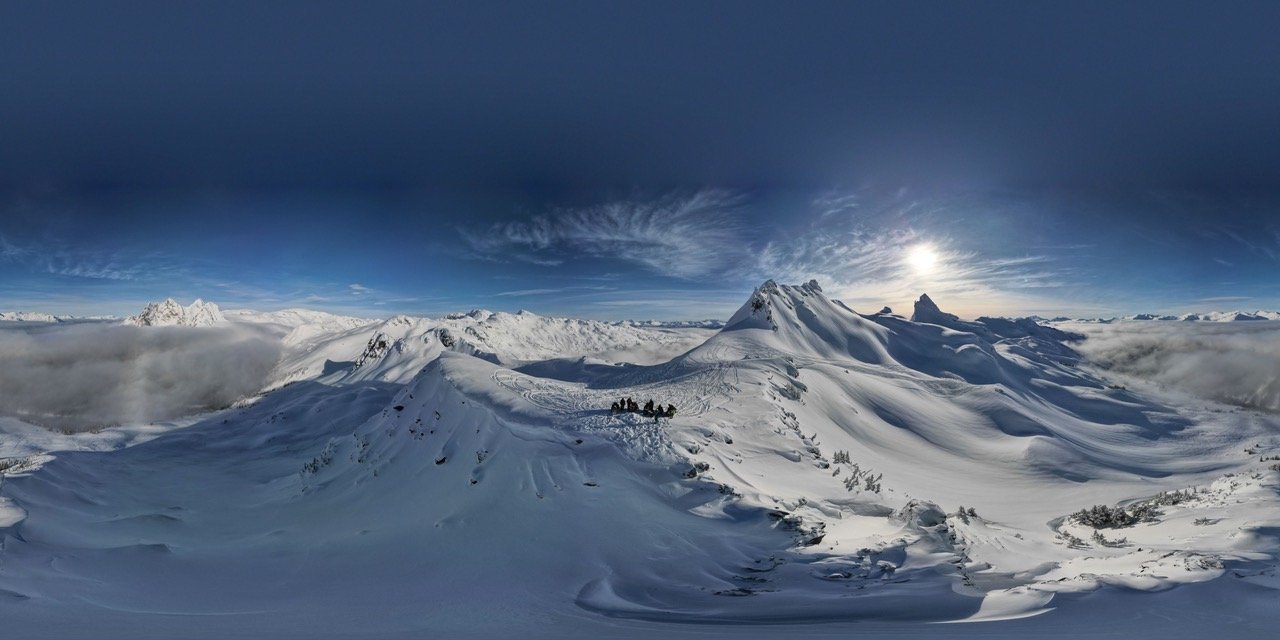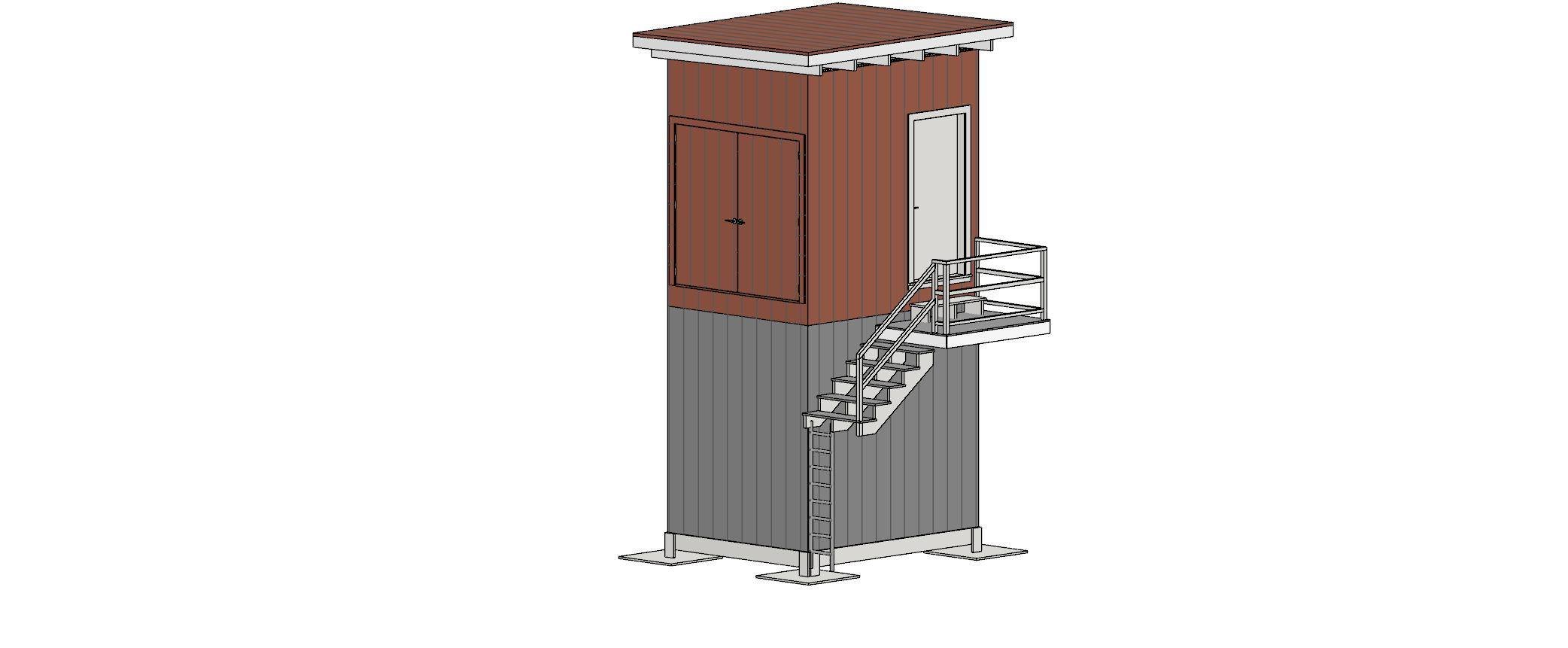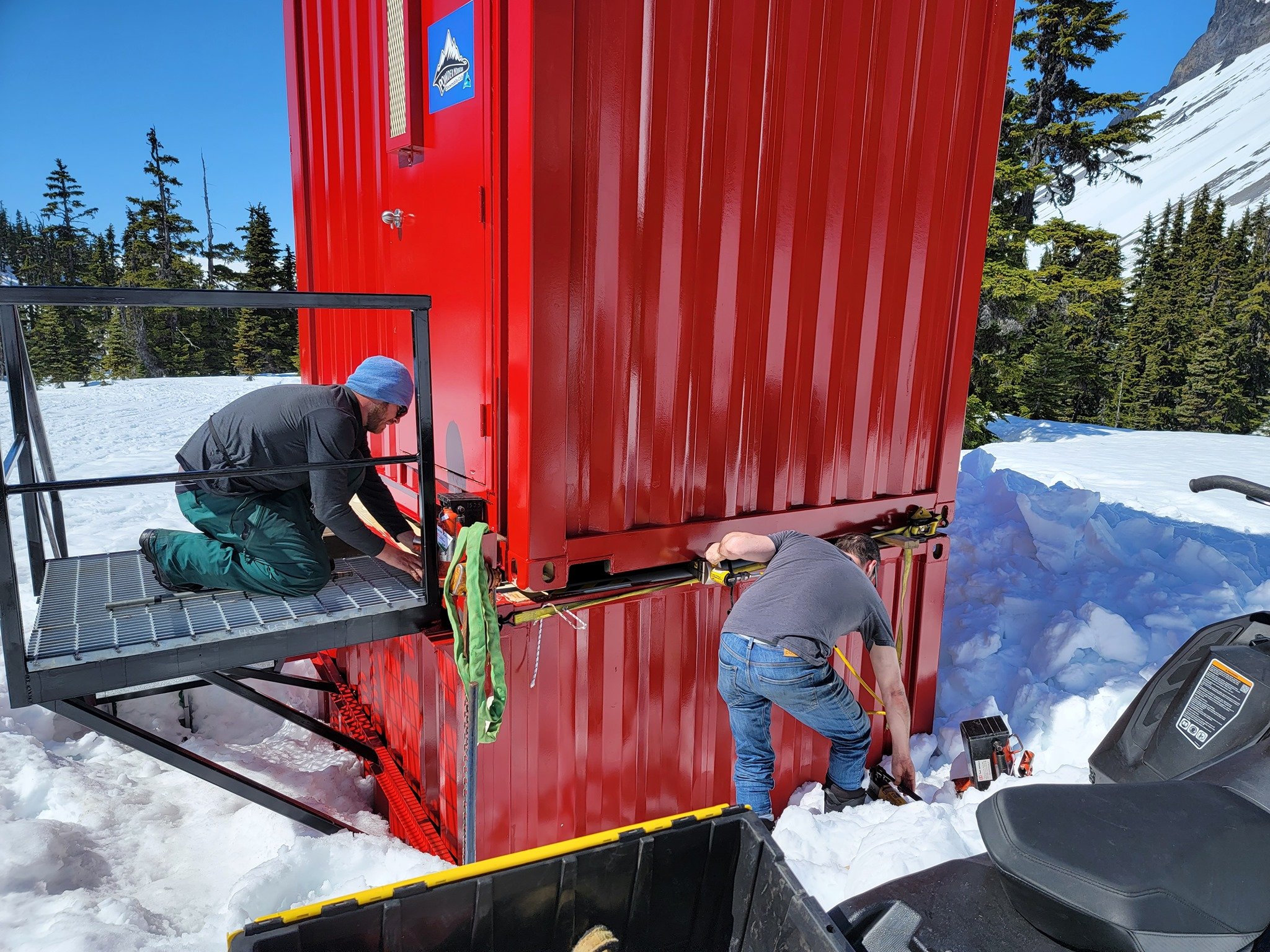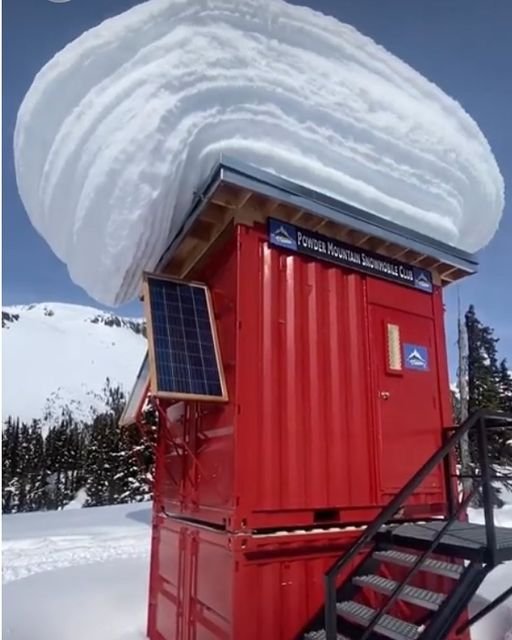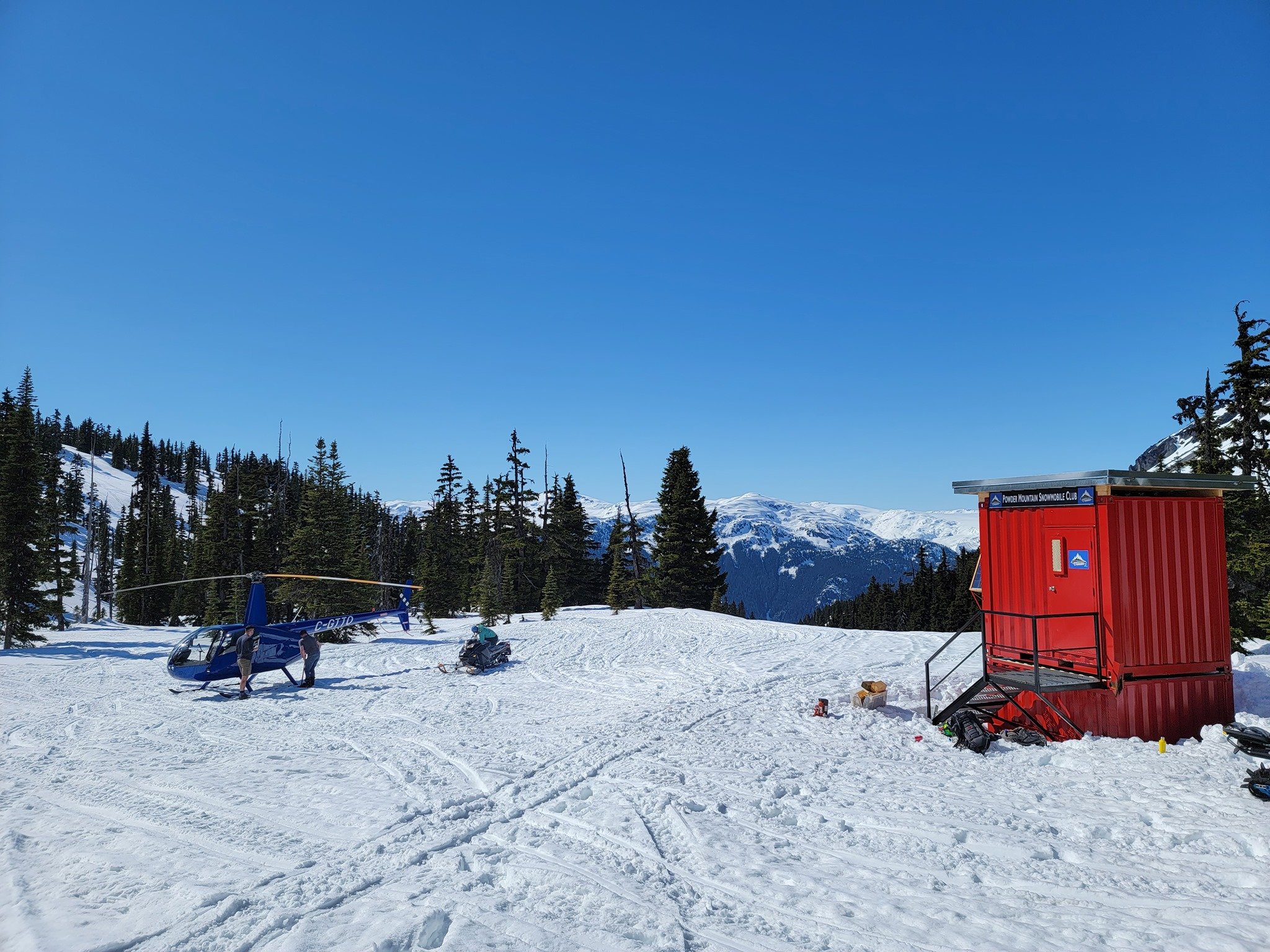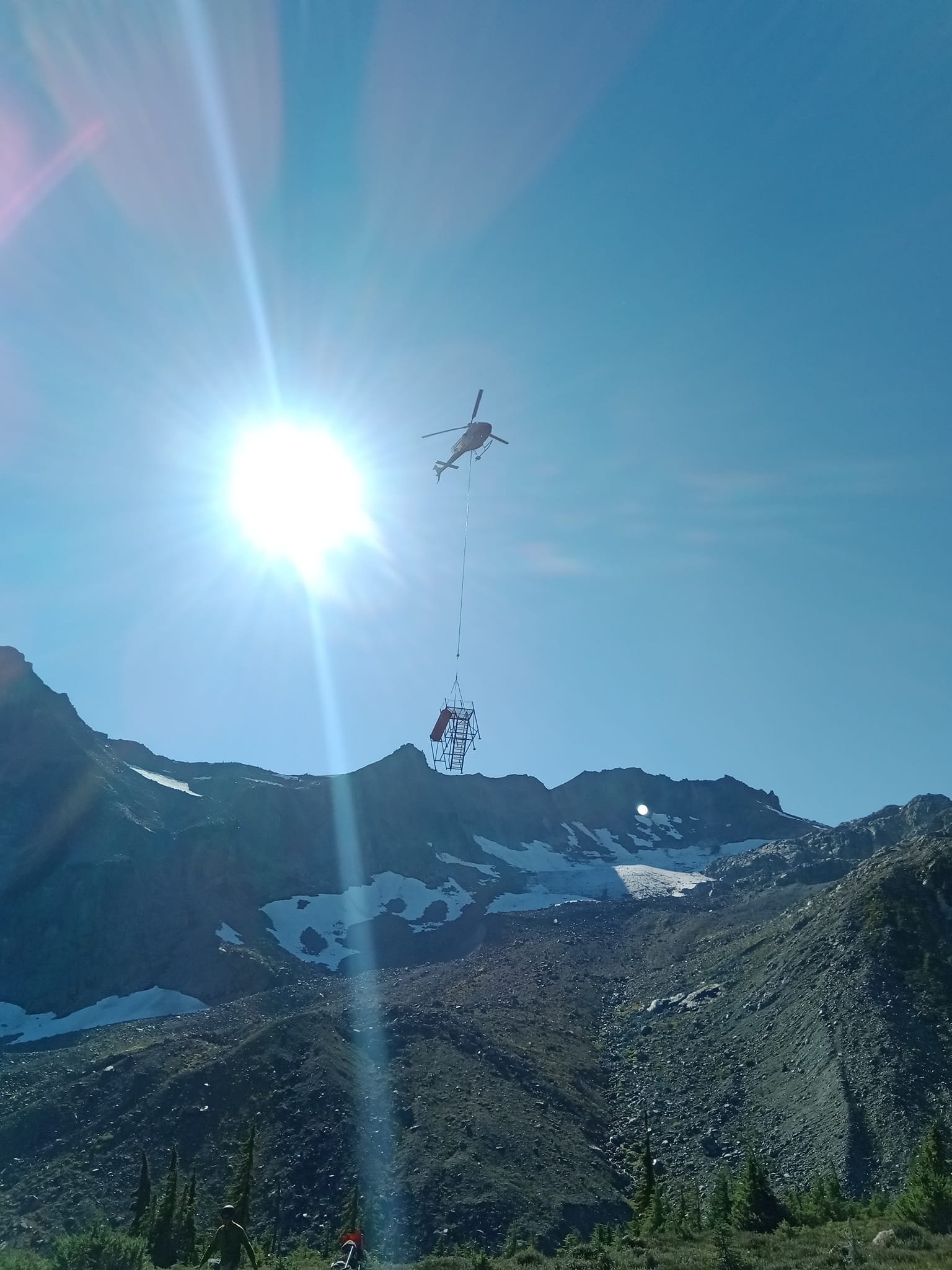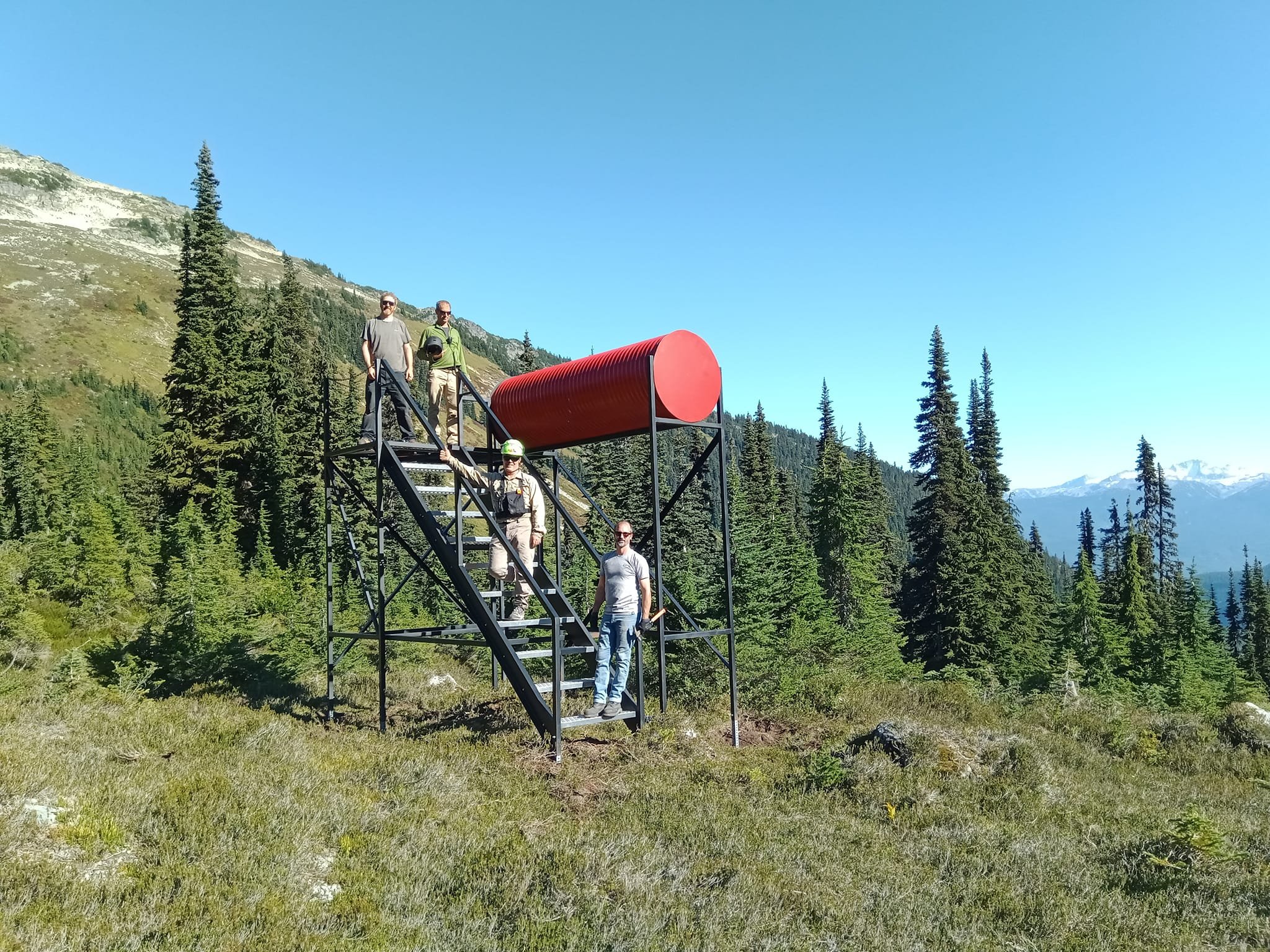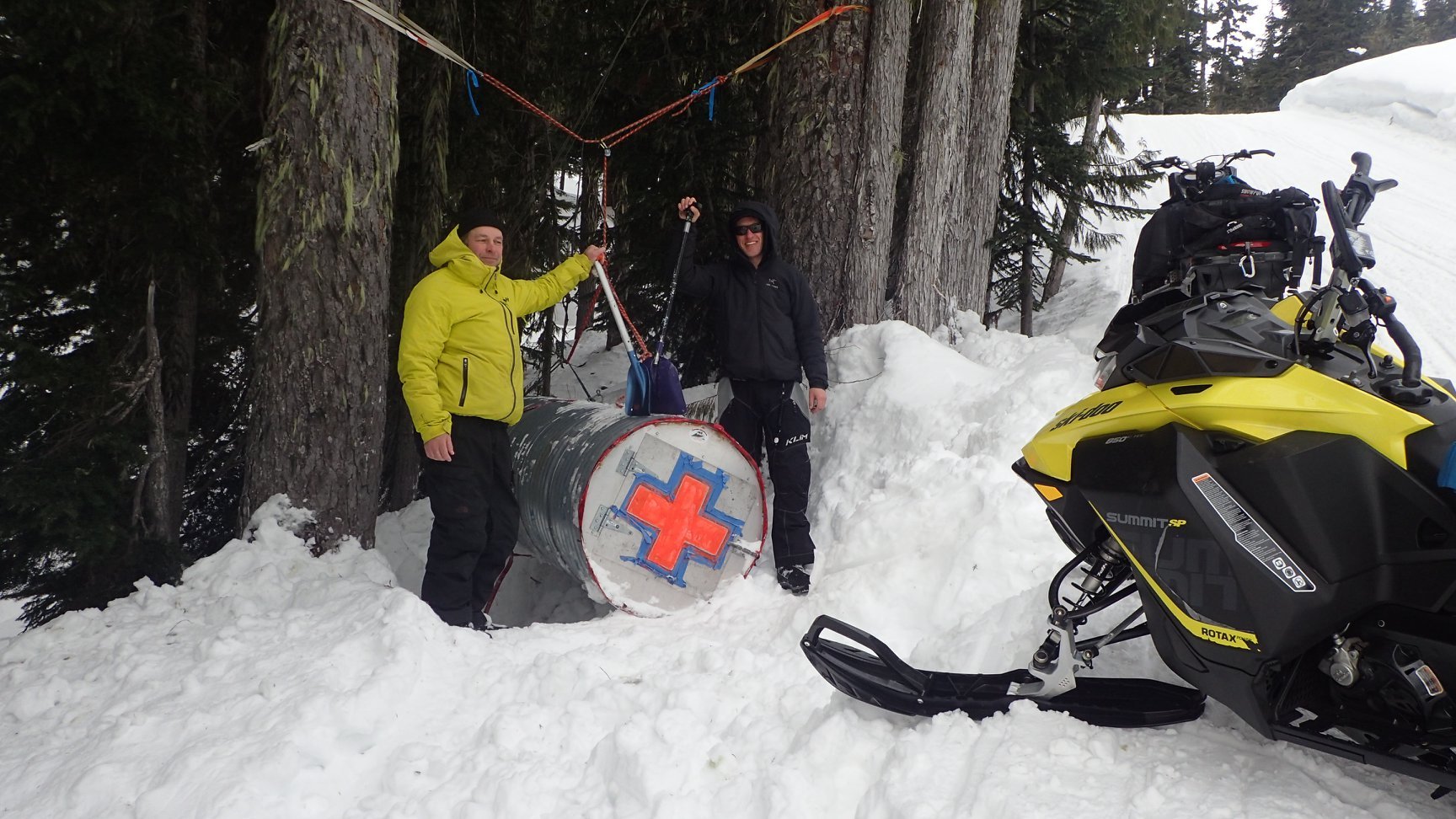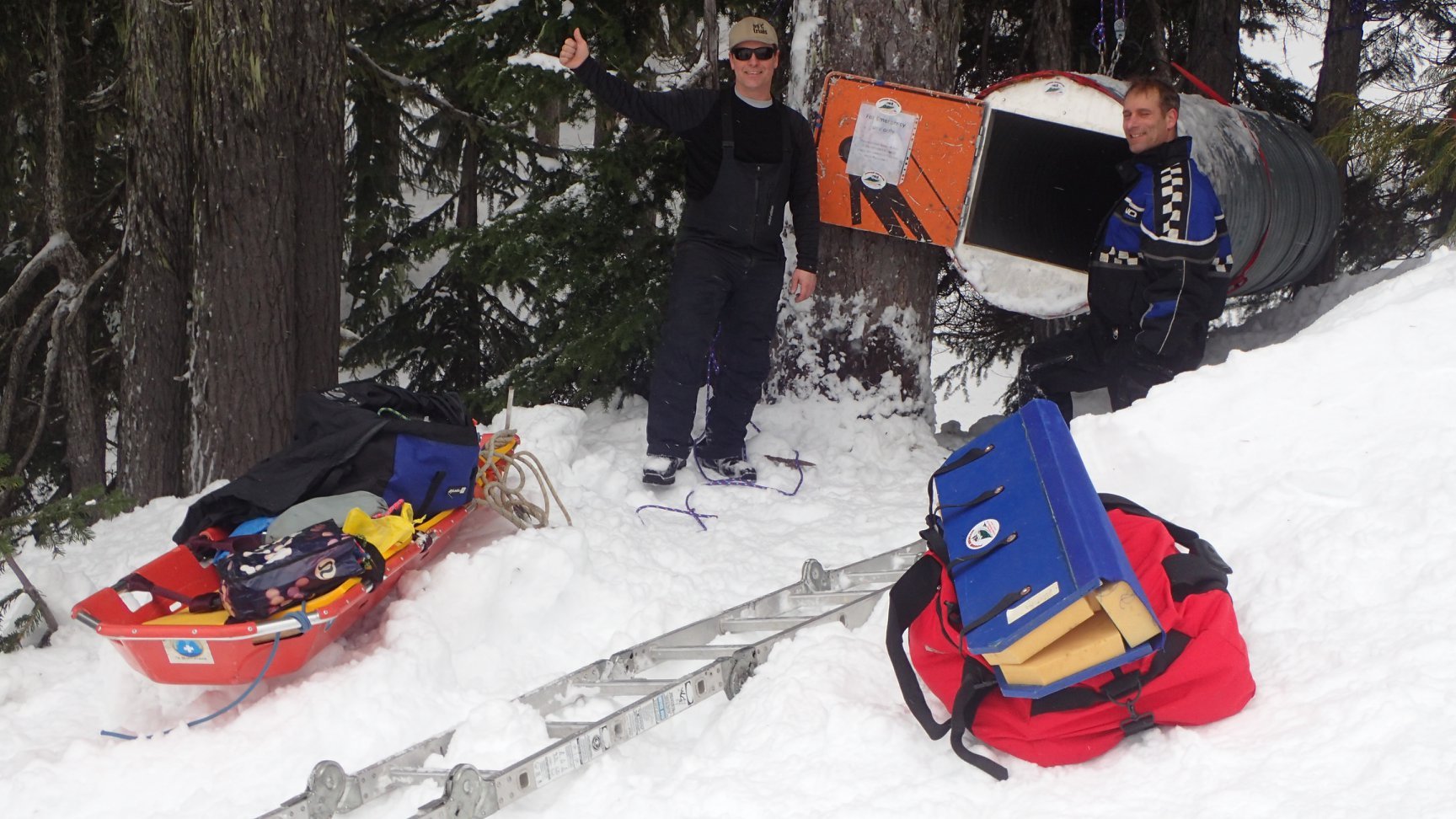Enhancing Winter Backcountry Safety: Whistler’s Powder Mountain Snowmobile Club's New Gear Cache Initiative
photo: Alex Rasovic
The British Columbia backcountry can be a thrilling and exhilarating playground for winter enthusiasts. However, it also presents unique challenges and risks, especially when it comes to rapidly changing weather conditions and unpredictable terrain. The Powder Mountain Snowmobile Club in Whistler, BC has recently launched an innovative initiative to establish backcountry emergency gear caches in support of public safety in their local riding zone.
THE MOTIVATION
The Brandywine area, located within BC’s Coast Mountain range, experiences fast-changing weather patterns, where clouds can quickly roll in, causing low visibility. While GPS devices can be helpful, the large amount of above tree line and glaciated terrain poses additional challenges under these conditions including crevasses.
EMERGENCY SHELTER AND SUPPLY CACHES
To address the need for shelter and emergency supplies, the Powder Mountain Snowmobile Club constructed a unique emergency shelter in the Ring Mountain area. The structure, located approximately a 1.5-hour snowmobile ride away from the parking lot, cost $40,000 to build. It consists of two 10x10 sea cans stacked on top of each other. The lower container elevates the structure above the snowline while the upper container provides room for ten people to shelter in an emergency. The site also provides and enough space for a helicopter to land if needed.
In winter 2023, the club also installed several rescue caches in strategic locations across their riding area. The caches are filled with essential supplies and provide riders and emergency responders with additional resources for emergencies. Unlike the rescue building, these caches do not offer overnight accommodations but are critical for providing immediate aid.
DESIGN AND CONTENTS
The Powder Mountain Snowmobile Club is continually refining their gear cache initiative. They have two designs, with plans to improve the newest one during summer 2023. The caches consist of 2-foot culverts with welded-on doors. The original design featured a single end opening, while the revised version incorporates dual doors to enhance accessibility during winter conditions.
There are two variations of the gear caches. The "tall boy" version stands at 10 feet high, equipped with adjustable legs for leveling. On the other hand, the "short boy" version measures 5 feet in height, strategically positioned to minimize snow accumulation caused by blowing winds.
The contents of these caches are curated by a member of Whistler Search and Rescue who also sits on the Powder Mountain Snowmobile Club board of directors. The caches contain essential rescue equipment, including a toboggan, backboard, and first aid supplies such as blankets, neck braces, and other medical necessities.
COSTS AND FUNDING
The gear cache project was made possible with funding from the BC ORV Trail Fund and membership dollars. The tall boy cache was approximately $10,000, while the low boy cache costs around $6,000 to build and install. Due to their weight and size, a helicopter is required to get the caches onto site accounting for $2,000 to $4,000 in project expense. The cost of supplies, including the toboggan, blankets, and first aid equipment within the caches, totals approximately $5,000.
The Powder Mountain Snowmobile Club's winter backcountry safety gear cache infrastructure initiative is a commendable effort to support their local backcountry community. As the project continues to evolve, it is hoped that increased awareness, support, and funding will enable the expansion of this essential safety infrastructure, further safeguarding winter enthusiasts in the backcountry.
LEARN MORE ABOUT SNOWMOBILING IN BC’S COAST MOUNTAIN REGION
Visit LetsRideBC.com for ride guides, travel information, trail maps and more.

